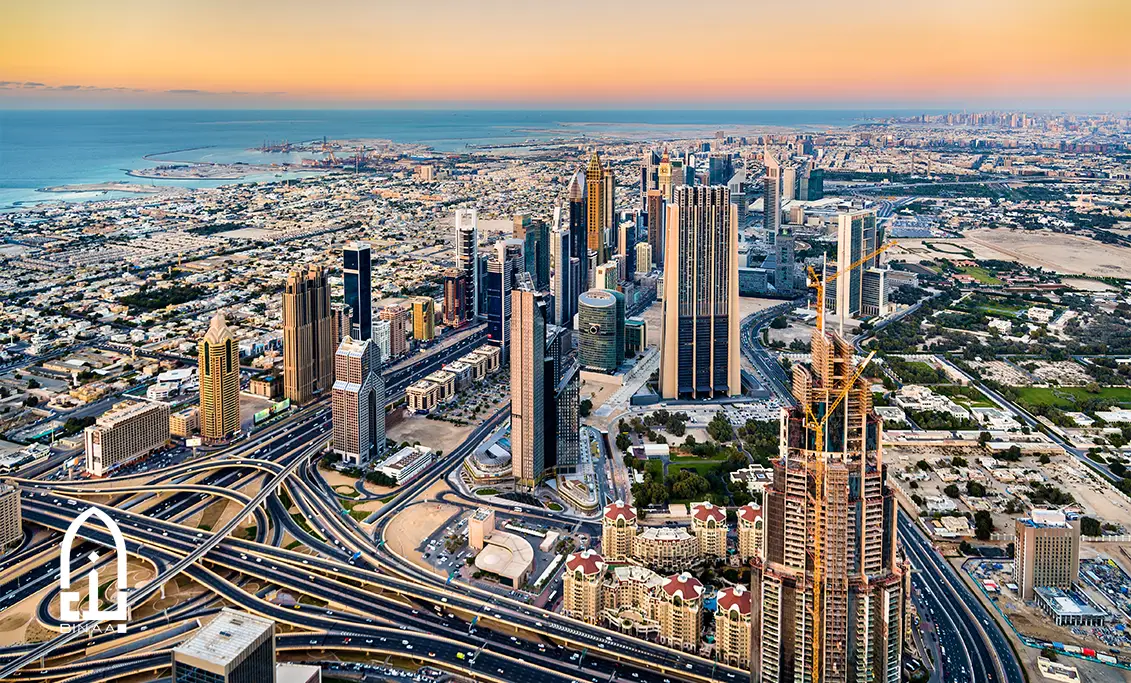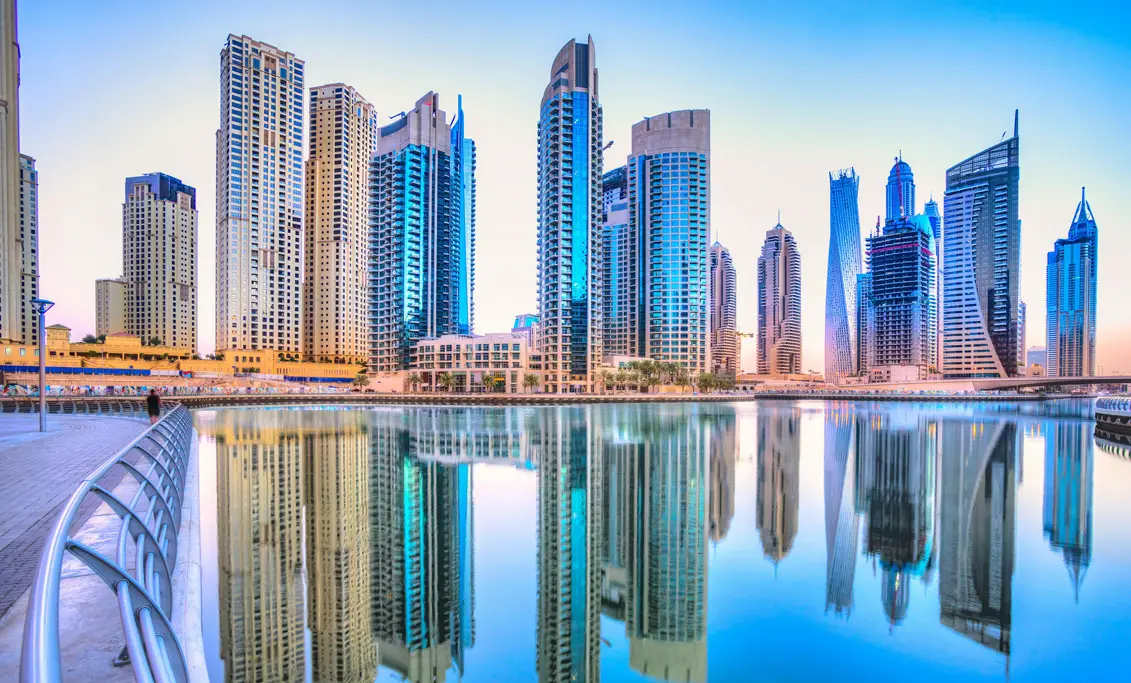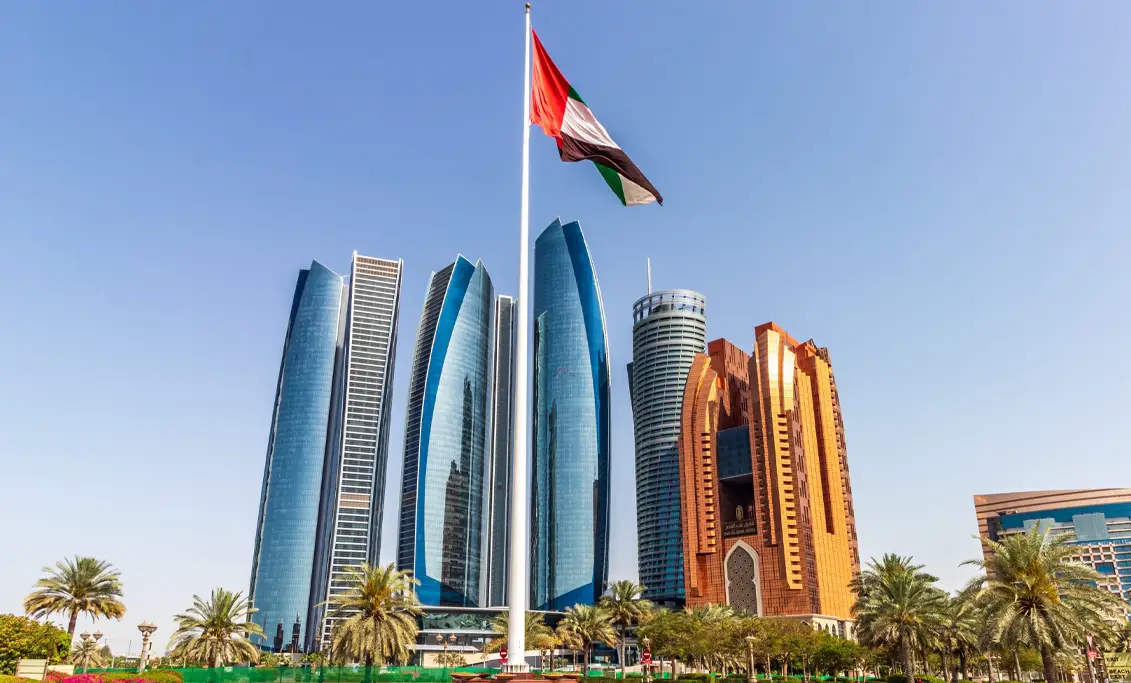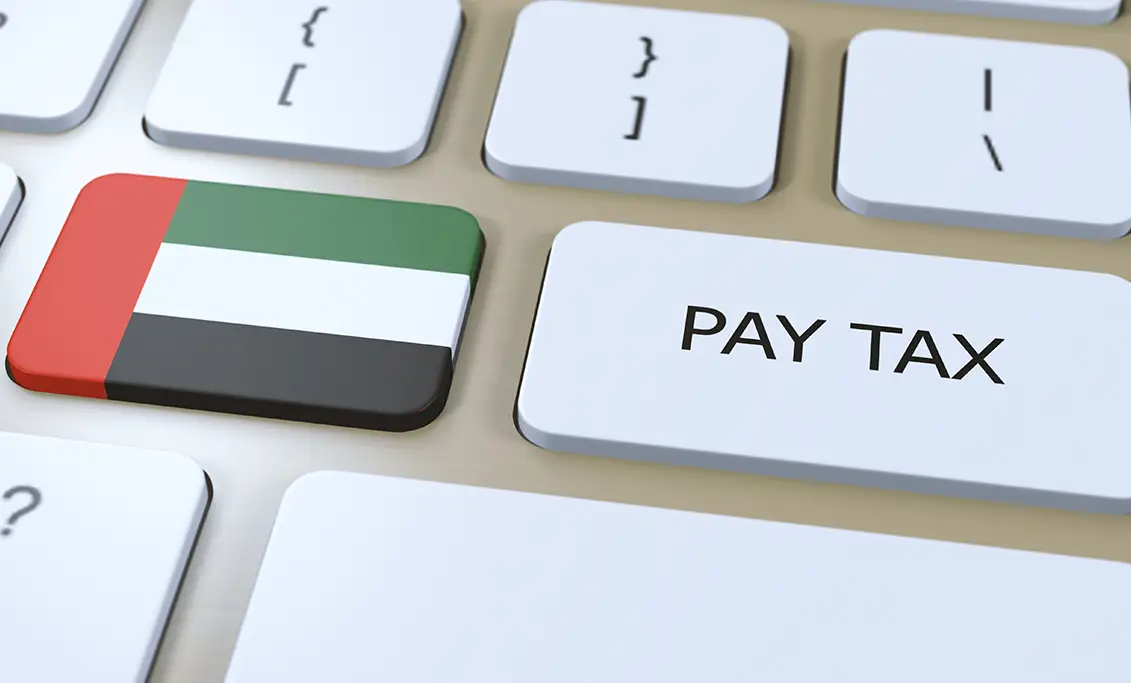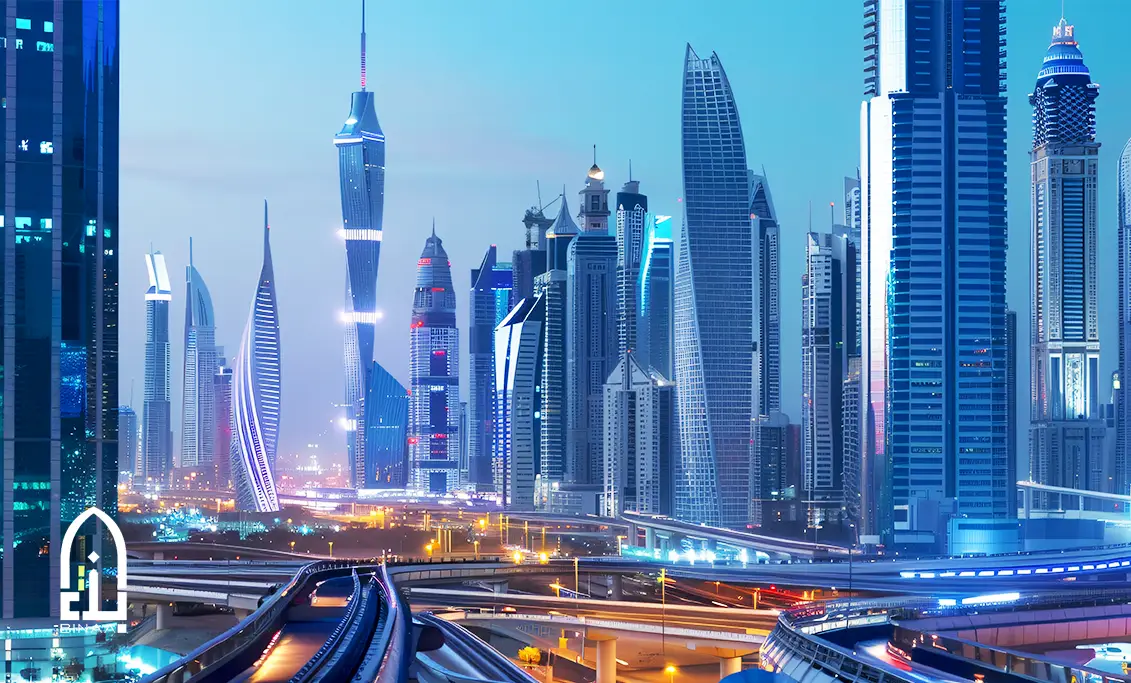Dubai is a city of dreams. It's a place where the impossible becomes possible.
The city's real estate market is no exception. It's dynamic, diverse, and offers a wealth of opportunities.
One such opportunity is freehold property ownership. But what is freehold property in Dubai?
In simple terms, it's the right to own a property and the land it stands on indefinitely. This concept was introduced in Dubai in 2002.
Before then, only UAE nationals could own property in Dubai. The change in law opened up the market to foreign investors.
This was a game-changer. It transformed Dubai into a global real estate hub.
Today, freehold property in Dubai is a sought-after investment. It's attractive to both local and international buyers.
But why is this so? What makes freehold property in Dubai so appealing?
The answer lies in the benefits it offers. These include long-term security, potential for capital appreciation, and freedom to modify the property.
However, it's not just about the benefits. Understanding the legal framework and the process of buying freehold property is crucial.
This article aims to provide a comprehensive guide to freehold property ownership in Dubai. It will delve into the legalities, the benefits, and the potential pitfalls.
Whether you're a potential investor, an expatriate, or simply curious, this guide is for you. Let's embark on this journey to understand freehold property ownership in Dubai.

What is Freehold Property in Dubai?
Understanding freehold property in Dubai requires a look at ownership types. Freehold ownership grants full ownership of the land and property indefinitely. This contrasts with the older leasehold model.
Previously, only UAE nationals could own land. However, since the early 2000s, foreign nationals have been allowed to purchase freehold properties. This change was a significant milestone in Dubai's real estate development.
Freehold properties in Dubai offer buyers significant flexibility. Owners can lease, sell, or live on their property without restrictions. This autonomy is a key attraction for international investors.
These properties are mostly located in designated areas known for their appeal. Areas like Downtown Dubai and Palm Jumeirah provide luxurious living options with premium amenities.
Freehold ownership is not just about property rights. It's also about tapping into the vibrant real estate market of Dubai. Investors can enjoy steady rental yields and potential capital growth in a booming city.
The Evolution of Freehold Property Rights in Dubai
The evolution of freehold property rights in Dubai traces back to a significant policy shift. In 2002, a groundbreaking decree was enacted. This allowed foreigners to own freehold properties in designated areas.
Before this decree, property ownership was largely restricted to UAE nationals. Foreign residents could only lease properties. The introduction of freehold ownership marked a new era in Dubai's real estate landscape.
This policy was a catalyst for economic growth, bringing numerous global investors. It transformed Dubai into a vibrant international hub. The real estate sector witnessed a rapid expansion as a result.
With this shift, new developments began rising across the city. Areas such as Dubai Marina and Emirates Hills were developed to attract foreign buyers. These zones offered world-class amenities and distinctive architectures.
The strategic vision to attract international investment paid off immensely. Over the years, these changes have redefined the market. Today, Dubai's freehold property sector stands as a model of innovation and growth.
Legal Framework for Freehold Ownership in Dubai
The legal framework for freehold ownership in Dubai is robust and clear. It is designed to safeguard the interests of both owners and developers. Essential laws ensure transparency and trust in property transactions.
A key piece of legislation is Law No. 7 of 2006. This law governs real estate registration in Dubai. It was established to formalize property rights and registration processes.
Foreign ownership is only allowed in designated freehold zones. These zones are clearly defined and regulated. Owners outside these areas may face legal restrictions.
The Dubai Land Department (DLD) oversees all property transactions. This government body is responsible for registration and legal compliance. It ensures all dealings adhere to prescribed laws.
Additionally, Dubai's Real Estate Regulatory Authority (RERA) plays a pivotal role. RERA is tasked with regulating the emirate's real estate sector. It provides guidelines and resolves disputes in property transactions.
Ownership transfer in Dubai requires legal documentation. Buyers must obtain a Title Deed to confirm ownership. This document is registered with the DLD, ensuring legal recognition.
Property transactions in Dubai also require a Sales Purchase Agreement (SPA). The SPA sets out the terms between buyer and seller. All parties must comply to ensure a valid transaction.
The legal framework also protects buyers through escrow accounts. Developers must use these accounts to hold purchase funds. This ensures financial security for buyers during project completion.
Developers are obligated to register their projects and comply with RERA regulations. This includes financial disclosure and adherence to timelines. Non-compliance can result in penalties or project suspension.
Strata laws govern shared properties such as apartments. These laws dictate management and maintenance responsibilities. Owners have rights and obligations to maintain communal harmony.
Overall, Dubai's legal system is designed to protect investments. Its strength lies in its clarity and enforcement. Investors can be confident in the security of their property rights.

Freehold vs Leasehold: Understanding the Differences in Dubai
In Dubai, property ownership options are primarily divided into freehold and leasehold. Each has unique characteristics. Understanding these differences helps buyers make informed decisions.
- Freehold property grants full ownership rights. Owners can freely sell, lease, or bequeath the property. This makes it attractive to investors and expatriates alike.
- Leasehold property, on the other hand, offers temporary rights. Typically, these rights last for 99 years. At the end of this period, ownership reverts to the landowner.
One key distinction involves control and flexibility. Freehold owners have total control over their property. Leaseholders need landowner consent for major modifications.
Financial implications also vary significantly. Freehold properties often require a larger initial investment. However, they offer potential for capital appreciation and rental income.
Leasehold properties may be less expensive initially. Yet, they come with recurring costs. Leaseholders may have to pay ground rent or renewal fees.
To summarize, here are the core differences between freehold and leasehold:
- Ownership Rights:
Freehold provides complete ownership.
Leasehold offers a long-term lease from the landowner.
- Control Over Property:
Freehold owners have total autonomy.
Leaseholders require approval for changes.
- Investment Potential:
Freehold has higher appreciation potential.
Leasehold can have lower upfront costs.
- Duration of Ownership:
Freehold offers indefinite duration.
Leasehold is limited to the lease term.
In Dubai, property buyers must carefully weigh these options. The decision often depends on long-term goals. For those seeking permanence and autonomy, freehold properties are preferred.
Regardless of the choice, buyers should consult with legal experts. Understanding the terms and implications of each ownership type is crucial. This ensures a decision aligned with one's investment strategy.
Areas in Dubai Where Freehold Property is Available
Dubai offers a variety of freehold areas, catering to diverse preferences. These locations vary in style, amenities, and pricing. Understanding these areas helps buyers choose the best fit for their needs.
Downtown Dubai is a premier freehold area. It is home to iconic landmarks like the Burj Khalifa. It attracts those seeking a cosmopolitan lifestyle.
Dubai Marina is another popular choice. Known for its stunning waterfront views, it offers a vibrant community atmosphere. Many expatriates choose to live here.
Palm Jumeirah stands out as a luxury destination. Its unique shape and upscale properties draw high-net-worth individuals. It is ideal for those preferring exclusivity and scenic beauty.
For families, Arabian Ranches provides spacious villas. It offers tranquil suburban living with ample green spaces. It is perfect for a quieter lifestyle away from the city's hustle.
Jumeirah Lakes Towers (JLT) offers a mix of residential and commercial spaces. Its convenient location makes it attractive for professionals and families alike.
Here is a list of popular freehold areas in Dubai:
- Downtown Dubai: Urban living, close to major attractions.
- Dubai Marina: Vibrant, waterfront living.
- Palm Jumeirah: Exclusive, luxury residences.
- Arabian Ranches: Family-friendly, suburban setting.
- Jumeirah Lakes Towers: Mixed-use, centrally located.
Some freehold areas offer innovative developments and contemporary design. For instance, Business Bay is rapidly growing into a business hub. Its modern skyscrapers reflect Dubai's ambitious future.
Each freehold area in Dubai has its unique appeal. Factors like lifestyle, budget, and proximity to amenities affect buyer choices. A thorough evaluation helps make the right investment decision.
Choosing the right area requires careful consideration. Buyers need to align their lifestyle needs and investment goals. Researching various neighborhoods provides clarity and helps ensure satisfaction.
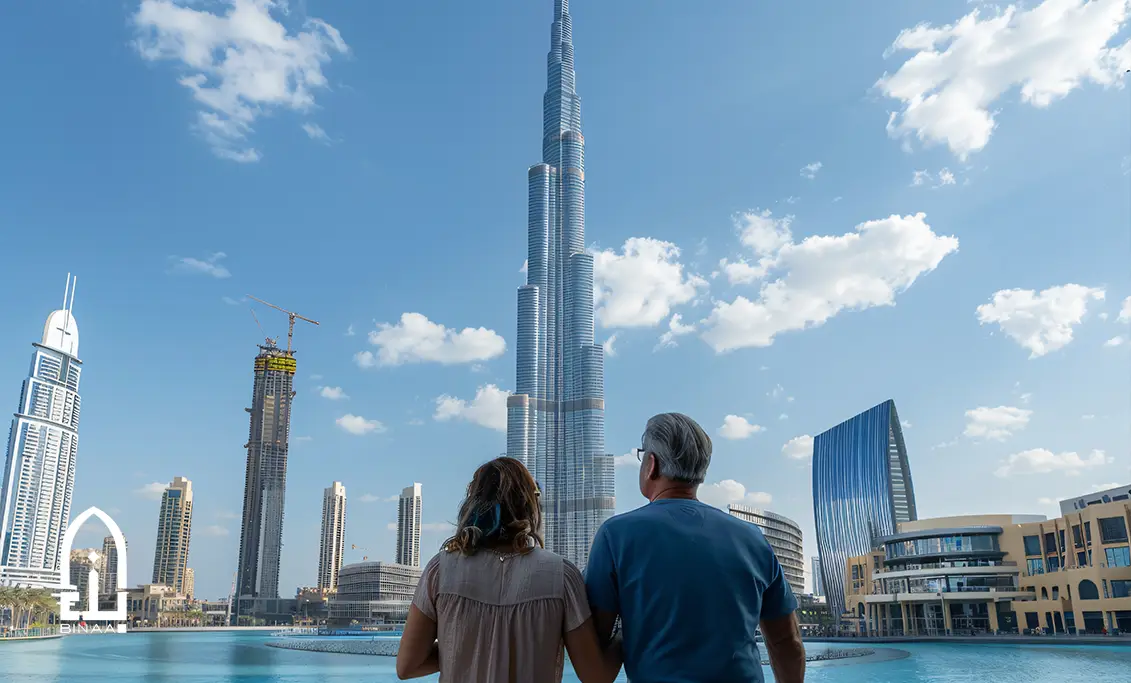
The Rights and Privileges of Freehold Property Owners
Owning a freehold property in Dubai grants numerous rights. One key privilege is full ownership of the land and structure. This offers a strong sense of security and belonging.
Freehold property owners can freely sell or lease their property. This provides flexibility and control over investment decisions. Such freedom can optimize financial returns.
Another privilege is the right to modify the property. Owners can customize interiors and exteriors to match personal preferences. This is subject to local regulations, ensuring community harmony.
Inheritance rights are a significant benefit of freehold ownership. Property can be legally passed to heirs without complications. This ensures the property's legacy continues for generations.
Community amenities are often available to freehold property owners. These include access to recreational facilities like pools and gyms. They enhance lifestyle quality and community engagement.
Freehold owners also participate in community associations. This engagement allows them to influence local governance. It fosters a collaborative approach to neighborhood development.
Ownership comes with maintenance responsibilities. Owners must ensure their property is well-kept. This helps maintain property value and overall aesthetic appeal.
Freehold ownership provides legal protection under Dubai law. This offers peace of mind to owners, knowing their investment is secure. The Dubai Land Department ensures compliance and upholds property rights.
These rights underscore the appeal of freehold ownership. They combine property control, community involvement, and financial stability. Together, they create a compelling case for investing in freehold property in Dubai.
The Process of Purchasing a Freehold Property in Dubai
Purchasing a freehold property in Dubai involves several critical steps. First, potential buyers should conduct thorough research. This research should consider market conditions and location preferences.
Selecting a qualified real estate agent can facilitate the buying process. Agents possess local expertise and can provide valuable advice. They assist in finding properties that meet specific requirements.
Once a suitable property is identified, the next step is to make an offer. Negotiating a fair price requires understanding current market trends. A written agreement follows once both parties settle on terms.
To proceed, buyers need to pay a deposit, usually 10% of the property price. This deposit is often held in escrow, securing the buyer's interest. Due diligence is crucial during this phase, ensuring no legal issues exist.
Legal procedures include signing a Memorandum of Understanding (MOU). The MOU outlines terms and conditions agreed upon by both parties. It's advisable to engage legal counsel to review this document.
Finalizing the purchase involves registering the property with the Dubai Land Department. Buyers pay transfer fees and other administrative costs. The title deed, confirming ownership, is then issued to the new owner.
Here's a summarized process list:
- Conduct thorough market and location research.
- Engage a qualified real estate agent.
- Identify potential properties and make an offer.
- Pay a deposit to secure the property.
- Sign a Memorandum of Understanding.
- Register the property with the Dubai Land Department.
The registration process might include additional steps for foreign buyers. It's advisable to secure financing beforehand if required. Banks in Dubai offer various mortgage options for property purchases.
Understanding these steps ensures a smooth buying experience. Each step is essential in transitioning from a prospective buyer to a property owner. Legal compliance and due diligence are pivotal throughout the process.
While the process may seem complex, expert guidance helps simplify it. Engaging experienced professionals reduces risks and ensures a successful transaction. This approach can transform potential challenges into a rewarding investment journey.
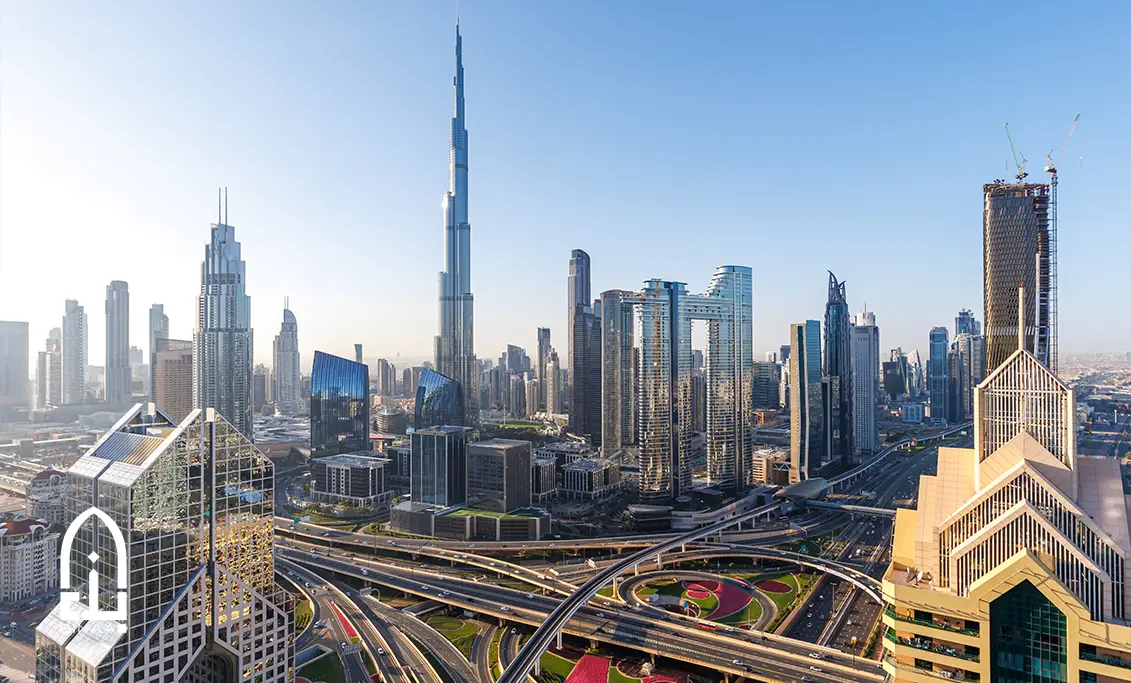
Benefits of Owning a Freehold Property in Dubai
Owning a freehold property in Dubai offers numerous advantages. One of the most significant benefits is the full ownership rights it grants. This means you can sell, lease, or renovate your property without restrictions.
Another key benefit is the potential for capital appreciation. Dubai's real estate market has seen substantial growth over the years. This trend often leads to increased property values over time, benefiting investors.
Freehold property owners also enjoy tax advantages. Dubai's lack of property tax and capital gains tax is attractive to investors. This financial environment encourages property investment and ownership.
In addition to financial gains, owning a freehold property provides lifestyle benefits. Many developments boast world-class amenities, like swimming pools, gyms, and parks. These amenities enhance the quality of life for residents.
Community integration is another important advantage. Freehold areas in Dubai often host a diverse, multicultural population. Living in such communities fosters a sense of belonging and cultural exchange.
These benefits make freehold property in Dubai an appealing choice. Whether for personal use or investment, freehold ownership offers stability. The combination of economic and lifestyle incentives continues to attract buyers worldwide.
Investment Potential: Capital Appreciation and ROI
Investing in freehold property in Dubai offers robust potential for capital appreciation. The city's real estate market has been experiencing steady growth. This upward trend is driven by factors like economic expansion and strategic development projects.
Dubai attracts a diverse range of investors due to its favorable investment climate. The potential for high returns on investment (ROI) remains a key attraction. Investors often enjoy a healthy yield from rental income and property value appreciation.
Strategic locations within Dubai significantly influence property value growth. Areas with excellent infrastructure, amenities, and accessibility tend to perform better. Selecting properties in these locations can enhance capital appreciation and ROI.
Market stability is another key factor contributing to investment success. Dubai's government initiatives and regulatory frameworks ensure a secure environment. These measures build investor confidence, encouraging long-term investments.
Finally, the real estate sector benefits from Dubai's global reputation. The city's status as a business and tourism hub attracts international interest. This global interest helps sustain demand, driving continued growth in property values.
Inheritance and Property Transfer for Freehold Owners
Inheritance laws in Dubai provide a structured framework for property transfer. This structure ensures clarity and legal security for heirs. Understanding these laws is crucial for freehold property owners.
For expatriates, inheritance matters are particularly important. Dubai allows owners to determine how their property will be passed on. However, writing a will is advisable to outline specific wishes.
Transferring a freehold property involves key legal processes. First, the Dubai Land Department oversees these transfers to ensure compliance. The procedure includes documentation and adherence to regulatory requirements.
It is essential for owners to consult legal experts. These professionals offer guidance on inheritance planning and property transfer. Their expertise helps navigate the complexities involved, ensuring a smooth transition.
Role of the Dubai Land Department in Freehold Transactions
The Dubai Land Department (DLD) plays a pivotal role in property transactions. It regulates and ensures the transparency of the real estate market. This includes overseeing freehold property transactions.
For both buyers and sellers, the DLD provides essential services. These services include property registration and verification of ownership. These processes uphold the integrity of property dealings in Dubai.
The DLD also handles disputes related to real estate transactions. It serves as an official body, ensuring fair resolution of conflicts. This jurisdiction provides confidence to both local and foreign investors.
Furthermore, the DLD maintains a comprehensive database of real estate information. This database aids in market analysis and policy-making. Keeping records updated enhances trust in Dubai's real estate market.
Current Trends in Dubai's Freehold Real Estate Market
Dubai's freehold real estate market shows dynamic movement. Recent trends indicate a shift towards affordable housing options. This shift aims to attract a broader range of investors.
There is a growing demand for mixed-use developments. These projects offer residential, commercial, and retail spaces in one location. Such integration enhances convenience and lifestyle for residents.
Sustainability has become a significant trend in new developments. Developers focus on green buildings and energy-efficient designs. These initiatives align with Dubai's vision for sustainable urban growth.
The influence of global events, like Expo 2020, is notable. Major infrastructural developments boost real estate appeal. Consequently, property values in strategic locations have seen growth.
Technology is transforming the buying and selling process. Virtual tours and digital transactions have become commonplace. These innovations make the market more accessible to international buyers.

Financing and Mortgages for Freehold Properties
Securing a mortgage is a vital step when purchasing a freehold property. Dubai offers several financing options for potential buyers. Both residents and non-residents can access mortgage facilities.
Banks in Dubai provide competitive interest rates. These rates vary depending on the applicant's profile and loan terms. Buyers must compare offers to find the best deal.
It's crucial to understand the eligibility criteria for obtaining a mortgage. Lenders typically require a minimum salary threshold. Applicants need to provide proof of income and employment stability.
Down payment requirements are significant considerations in financing. Typically, non-resident buyers must pay a higher percentage upfront. This can range from 20% to 50% of the property's value.
Finally, engaging with a mortgage advisor can be beneficial. Advisors help navigate the complexities of financing options. This support ensures that buyers make informed decisions.
Due Diligence and the Importance of Legal Representation
Due diligence is a critical step in buying a freehold property. It involves thoroughly evaluating all aspects of the investment. This step ensures that there are no hidden pitfalls.
Legal representation is vital in navigating property transactions. A lawyer helps clarify the complexities of legal documents. They also ensure all transactions comply with Dubai's laws.
Understanding contractual obligations is an essential part of due diligence. Legal representatives review the sale agreement and related contracts. This step prevents potential disputes and misunderstandings later on.
Verifying property titles and ownership records is another crucial aspect. This verification protects against fraudulent sales and claims. It assures buyers that they are investing in secure assets.
Finally, engaging a reputable lawyer protects the buyer's interests. Experienced legal professionals provide insights into potential risks. This proactive approach minimizes setbacks in property acquisition.
Common Misconceptions About Freehold Ownership in Dubai
Many believe that only UAE nationals can own property in Dubai. However, freehold areas allow foreign ownership. This misconception often deters potential investors unnecessarily.
Another common myth is about hidden costs associated with ownership. Some assume that unexpected fees will surface post-purchase. In reality, costs are typically outlined in agreements.
There's also confusion about property rights. Some fear limitations on selling or leasing their properties. In freehold areas, owners enjoy full rights, including sale and lease.
Lastly, some think freehold properties are less secure investments. Concerns about unstable markets can cause anxiety. However, Dubai's steady legal framework supports a secure investment environment.
Conclusion and Future Outlook for Freehold Property in Dubai
Dubai's real estate market continues to evolve, making freehold property a significant option for investors. The city's vision for growth ensures continued developments and new opportunities.
The increasing interest from global investors shows confidence in Dubai's freehold market. This trend is bolstered by the city's strategic location and robust economic policies.
Future outlook appears promising, with ongoing infrastructure projects boosting property values. These developments attract more residents, strengthening demand in the freehold sector.
Overall, Dubai’s freehold property market offers a dynamic investment environment. As the city grows, it promises potential returns for those investing in its future.
Glossary of Freehold Property Terms in Dubai
Understanding key terms is crucial for navigating Dubai’s real estate market. Here is a glossary to help you with freehold property ownership.
Key Terms:
- Freehold Property: Property that gives owners complete ownership rights indefinitely.
- Leasehold Property: Property where ownership is limited to a set period, often for years.
- Dubai Land Department (DLD): The government body responsible for regulating the real estate sector.
- Oqood: A system for registering real estate contracts in the initial stages.
- Title Deed: A legal document proving ownership of the property.
- Strata Law: Governs the ownership and management of multi-owner properties.
By knowing these terms, investors can confidently engage in Dubai's property market. These concepts form the foundation for understanding freehold ownership.

